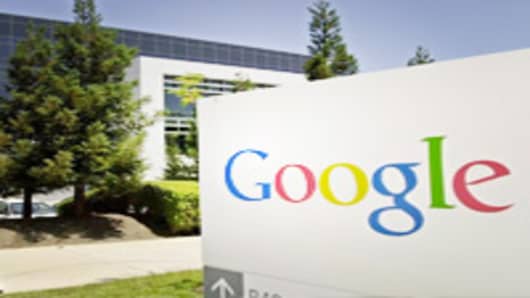Google said it was combining its different Web search services into one Universal Search service that would present Web sites, news, video and other results on one page.
Speaking to reporters at the company's "Googleplex" headquarters, Marissa Mayer, Google vice president of search and user experience, said Universal Search would be available from Wednesday and improved over time.
Google shares closed .
Universal Search means that standard Google searches will draw results from separate Google properties that target information about books, local information, images, news, and video, Mayer said.
"It's breaking down the silos of information that have been built up. It's a broad, long-term vision that will unfold over the next few years," Mayer said. "We are really excited about what Universal Search could evolve to in the future."
The combined search includes any site indexed by Google's services, such as YouTube, Google Video and independent video sites like Metacafe.com.
Mayer said other bodies of information Google was working on making searchable on the Web would be included in the future.
She indicated the new service could lead to more relevant advertising on Google's search result pages. That advertising accounts for roughly half of Google's revenue. The rest comes from Google ads that run on affiliated sites.
"For us, ads are (search) answers as well. I would hope that we can bring some of these same advances, in terms of richness of media, to ads," Mayer said.
The world's largest provider of Web search is also introducing new navigation features at the top of every Google page that let users quickly hop between Google properties.
For example, users of Google's e-mail service, Gmail, can jump instantly to Google search, calendar, documents, and other services, according to a demonstration at the press briefing.
The company also is preparing a translation service that converts queries into other languages, allowing a user to comb a broader swath of the Web, Google's Vice President of Engineering, Udi Manber, said at the event.
The technique will translate queries in any of a dozen languages into English, find additional search results, then automatically translate those back into the language of the original query. This will give users in any supported language a broader view of information on the Web.
"That by itself will open the whole Web to different languages," Manber said.
Manber joined Google 15 months ago from Amazon.com's Web search unit, A9.com, where he was chief executive. He also worked on Amazon's pioneering "Search Inside the Book" projects.


